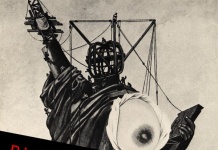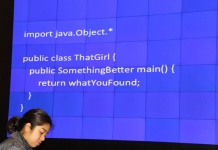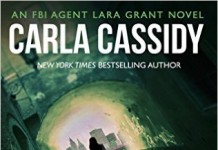 The public domain is a great thing for literary appreciation. Any title older than 1923—which includes most of the great literary novels, the works of 19th-century poets, and so on—is immediately available to anyone who can download an e-book.
The public domain is a great thing for literary appreciation. Any title older than 1923—which includes most of the great literary novels, the works of 19th-century poets, and so on—is immediately available to anyone who can download an e-book.
But what happens when a lost work turns up—and then promptly vanishes into a private collection? This is the question posed by Michael Rosen on the Guardian’s Books blog. Rosen reminds us that the four year anniversary recently passed of the discovery of a lost poem by Percy Bysse Shelley, entitled “Poetical Essay”.
The poem, self-published by Shelley in support of a friend imprisoned for libel, was known to scholars but considered lost, until a copy of the pamphlet containing it turned up in a British antiquarian bookshop. The reappearance of the poem caused a bit of a stir in the press, with at least one article by a literature professor about it, but then the owner sold it to a private collector and it disappeared entirely from view.
Rosen writes:
First of all, I would like the poem to be available to read by anyone who is interested. I believe that should have happened the moment it was rediscovered. Secondly, I want to know why Professor Woudhuysen was given the right to look at the poem, but no one else was. Thirdly, I want to know why this situation doesn’t seem to bother anyone in the great republic of letters, least of all that guardian of literary precision and exactitude, the TLS [Times Literary Supplement]. Isn’t it an outrage, that a long dead, great writer’s work can be hidden away in its owner’s drawer?
When I covered Mark Twain’s unpublished autobiography, I wondered who owned the copyright on the work and whether it should technically be in the public domain as soon as it was newly published. British copyright laws work a little differently from American ones, but even so it seems that since the Shelley poem was published, but lost, it should be in the public domain.
And there are so few obstacles to making it available now, should the owner want to. The wonder of the information age is that all it would take would be someone typing it into a computer, and suddenly the lost poem would instantly be available to the entire world.
But since the only extant copy of it has disappeared into the hands of a private collector, it is anyone’s guess whether it will ever actually show up. I imagine that, for the collector, the cachet of owning a Shelley poem only a couple of other living people have ever seen might be the entire point of buying it. It might be hard to convince such a person to share it with the world.

































I agree that it sounds as if the poem is legally in the public domain. That does not, I think, put any requirement on anyone who happens to own a copy to make this copy available for everyone else to look at.
From an eBook perspective, I think there’s another lesson here. A poem by a fairly recent and very major poet was thought lost, and survives only (as far as we know) in a single copy. How likely is such a loss in the world of eBooks. Not nearly as likely as with paper is my guess. I wonder how many of the pulps of the 1930s, 40s, 50s, and 60s have likewise been lost through acid rot. Every technology has its advantages and disadvantages (there’s nothing that comes close to baked clay when it comes to permanence).
Rob Preece
Publisher
This seems to me a perfect example of the distinction between the content and the medium it is carried on. The content was published and the copyright expired.
But the pamphlet is a product unto itself and subject to independent valuation. As Mr Preece correctly points out, the owner of the pamphlet is under no obligation to show it to anybody, much less let it be replicated for distribution. In this it is no different from a privately owned painting or sculpture, or even a first edition of a book. The medium is the product; the fact that there is no legal copyright on the content does not override the owner’s property rights. And if the owner chooses to limit viewing of his property he is within his legal rights. In this case, it is likely the collector made the purchase as a speculative investment, counting on demand to view the poem driving up the value of the pamphlet for future resale. (Of course, now that foks know what to look for, other extant copies just might show up, so he’d better act quick.)
This is, of course, the opposite of an ebook, where the value lies solely in the content as there is no physical medium to carry it.
Interesting. Maybe a few more cases like tis will help educate more people on the subtleties of (all kinds) of property rights.